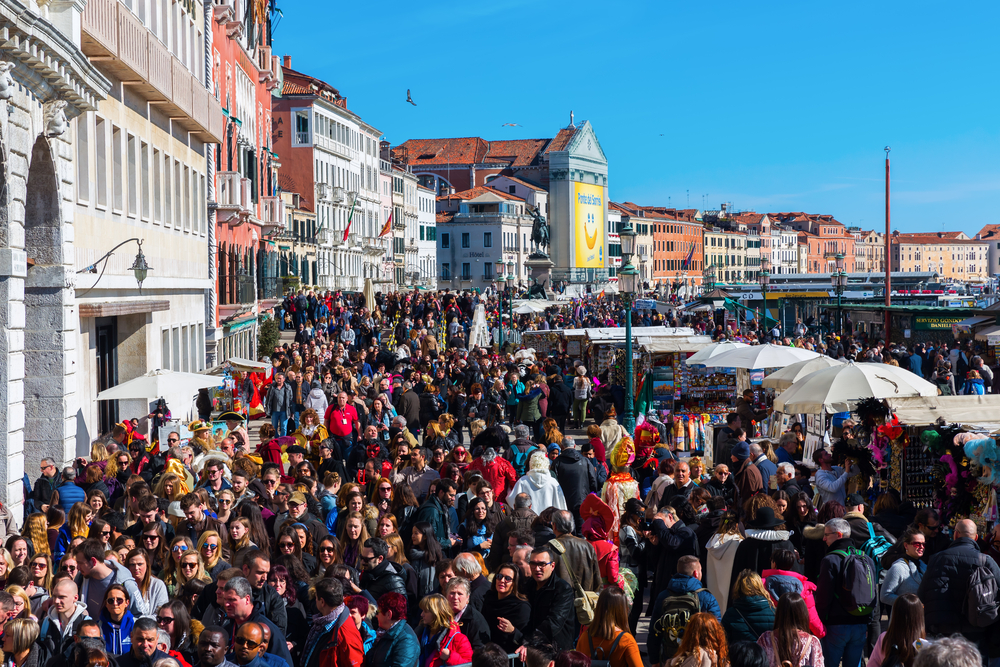Is Tourism Bad?

This week it was announced the UK has benefitted from an enviable surge in tourism throughout 2017. The total number of overseas visitors from January to July grew to 23.1 million, up 8% on the same period last year. Although it was anticipated we would experience increasing inbound tourism when the pound fell 20% following the EU referendum, no one could predict to what extent.
The surge in overseas visitors hit record numbers in July 2017 as we welcomed 4 million people over the month, up 6% on last year. We have also benefited from overseas visitors with increased spending power, with a record-breaking £2.8 billion spent in July, the highest amount since records began in 1961.
Steve Cassidy, Hilton’s Senior Vice President and Managing Director for UK and Ireland told the Press Association, “Over the past year in particular, we’ve seen strong growth in business and leisure performance. In fact, we’d probably call it – for the UK in particular – the golden age of travel.”
Leisure operators, visitor attractions, and hotels are just a few of the many businesses which have reaped the benefits from the surge in numbers. Last year over 30 million people visited the UK capital, and destinations such as Westfield, the London Eye, Wembley Stadium, the West End, the V&A and the Natural History Museum profited from such significant numbers.
The tourism and hospitality industry is a driving force for the London economy, a lifeline that keeps the capital kicking. So why is it then, as the UK is embracing record levels of inbound tourism, further reports of anti-tourism protests sweeping Europe were announced?
Barcelona, Paris, Amsterdam, Rome, Dubrovnik … this is not my ‘where to next?’ list. These are just some of the many popular European destinations where hostility towards overseas visitors is growing.
Spain had a record 75.6 million tourists in 2016, and the number is expected to reach 83 million in 2017. Barcelona is the twentieth most visited city in the world and ‘welcomed’ 34 million visitors in 2016. Venice, a city home to just 55,000 people, hosts 20 million visitors each year. And Amsterdam, a city of 850,000 residents, received 17 million visitors, set to reach 23 million in the coming years.
Tourism is fundamentally an immense economic benefit to these beautiful destinations, however these cities have sadly fallen victim to many of the undesirable side-effects from such significant droves of visitors, including unaffordable rents for locals due to the demand for holiday accommodation, and the impact of cruise ships and the pollution they cause.
The surge in visitor numbers to these European destinations is being fuelled, in part, by heightened tensions due to security concerns over previously popular destinations such as Tunisia, Egypt and Turkey. There is also a sweeping sentiment across the continent that politics and economies are not seen to be working with or for the people, leading to heightened tensions and home-grown hostility towards foreign visitors.
Spain is still recovering from a crippling financial crisis and it is essential governments and councils introduce more tactical and courageous methods to control the flow of visitors and expenditure, in order to save the economy and embrace the economic rewards that can come from mass tourism.
Speaking on behalf of the United Nations World Tourism Organisation, Secretary General Taleb Rifai said, “Ensuring that tourism is an enriching experience for visitors and hosts alike demands strong, sustainable tourism policies, practices and the engagement of national as well as local governments and administrations, private sector companies, local communities and tourists themselves.”
The UNWTO recommends a number of measures for managing crowds in popular destinations, stressing the focus should not be to simply stop people arriving at the destination. Thankfully new measures have already been introduced and more are still to come, to control the negative impacts from the surge in visitors.
Barcelona has begun a crackdown on unlicensed Airbnb apartments to take control of the city’s rising rents. Venice has introduced footfall trackers to monitor overcrowding at popular sites. Dubrovnik has installed cameras to monitor the flow of people in the old town so people can be stopped at a certain level. Amsterdam is increasing the tourist tax to encourage tourists who spend more and enjoy the city. In Rome, there is a ban on people eating or paddling in the city’s fountains and drinking on the street at night to discourage antisocial behaviour. And Milan, taking it one step further, has introduced a summer ban on everything from food trucks to selfie sticks.
With the numbers of tourists set the rise, it is essential cities remain globally competitive with improvements to laws, restrictions and infrastructure including roads, rail and airports. Tourism is a major economic force that drives our capital. Worth approximately £127 billion annually to the UK economy it must be harnessed.
Tourism Minister John Glen said: “Tourism is a major economic force that creates jobs and drives growth for the whole of the country. These record figures show the continued strength of this important sector and the UK’s global position as a must-visit destination.”
Operating in Shopping Centre and Venue Management, we see and hear the continual benefits that new innovations and market developments bring to our economy. Tourism drives footfall, increases sales and ultimately increases the overall asset value. This in turn, not only benefits the teams involved and the organisation, but also the surrounding local communities and the wider industry.
Shaunagh Durkin, Shopping Centre & Venue Management, Foundation Recruitment
